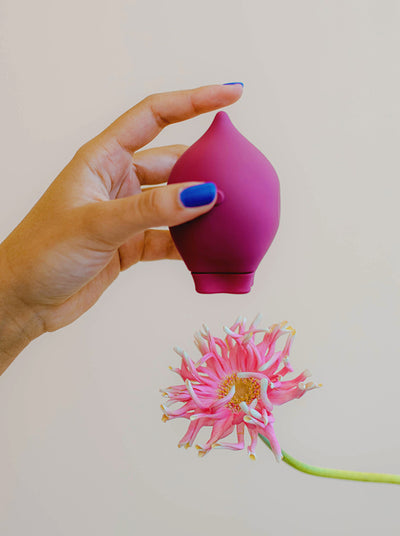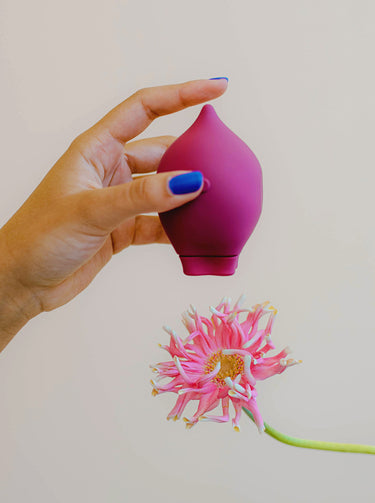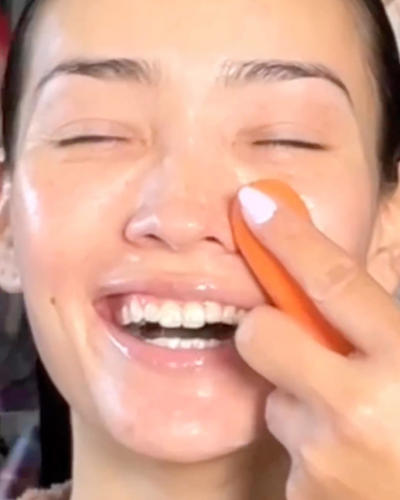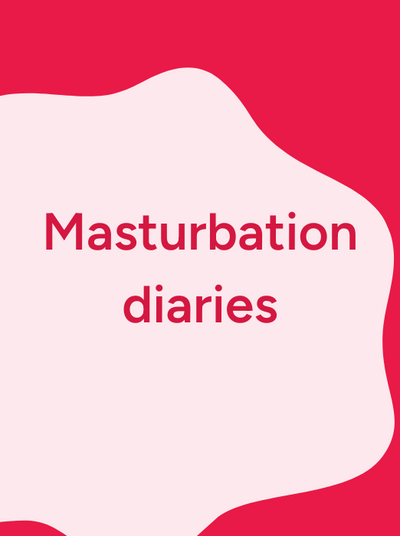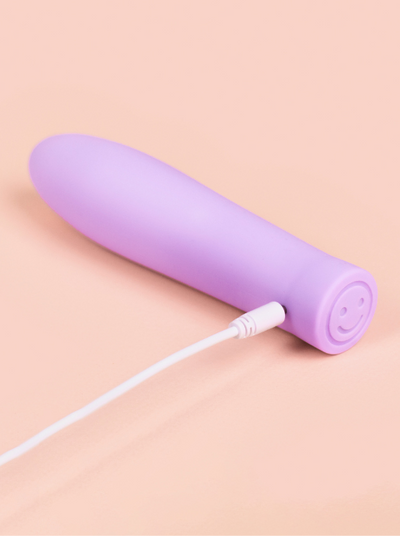At Smile Makers, we often see the words desire, arousal, libido, and sex drive all lumped together. Much like how vulva and vagina are treated synonymously, we believe that truly understanding the differences will empower us to live our best sexual lives! So, if you often ask yourself how do I increase my sex drive – female and vulva-centric sex ed can go a long way – trust us!
Put simply, your libido is your desire for sex or any sexual activity. Before we go any further, let’s define the difference between arousal and desire, because there is an important distinction. Arousal refers to the body's physiological changes in reaction to sexual stimuli. Vaginal lubrication, erected nipples etc. Arousal is purely biology in action, it is not voluntary. You can learn more about arousal in our section on the sexual response cycle in our Vulva Talks course.
What is sex drive?
Types of sexual desire.
A person’s desire refers to their emotional want for sex. You may have heard of terms such as libido or sexual appetite - these are referring to a person's sexual desire. Sex educator Emily Nagoski gives a brilliant alternative definition to the concept of the female sex drive:
If sex is a drive, then desire should be spontaneous, like a hunger. When you see a sexy person or have a stray sexy thought, it activates an internal craving or urge for sex. That’s called ‘spontaneous desire’.
There is another way of experiencing desire which is also healthy and normal, called “responsive desire”, where your interest only emerges in response to arousal. So, your partner comes over and starts kissing your neck and you’re like, “oh, right, sex, that’s a good idea.”

What affects libido?
While libido is often thought of as sex drive caused simply by biology, it’s so much more than that. The desire for sexual activity is driven by human biology, but physical, environmental, and psychological factors all play a huge part in our want for sex. Changes in hormones, medication, and other factors affect the dopamine pathways in your body, which directly affects your sex drive.
Libido is directly related to how you relate to and interact with the world around you. It’s personal, and that’s why every vulva-owner should acknowledge theirs – it’s part of our sexual being and can impact our wellness.
Sex drive throughout life.
Libido is different for everybody. Everyone has a different mental, physical, sexual, and environmental experience. Each of these factors affects libido stimulation or repression, and that causes major differences between all our sex drives.
For those that menstruate.
For menstruators, the cyclical phases, pregnancy, and menopause can all really impact libido. However, this doesn’t mean we have to accept nor expect low sex drive. We’re often told to these things will happen to us, and our sexual selves take a backseat. But pleasure can always be a priority of ours if we want it to be – and, nobody should tell you otherwise. Instead, let’s be armed with the knowledge to nurture our sexuality. Let’s create safe spaces for mums to talk about motherhood and sexuality. Let’s continue to have more and more prevalent conversations about how all the seasons of the menstrual cycle, not just periods, impacts menstruators’ days.
For others it could be other parts of our physical and mental; wellbeing illness, depression and antidepressants.
Mental health and sexual libido.
We asked Dr Donna Oriowo, a sex and relationship therapist, how mental wellbeing and medication that is part of the patient’s treatment, impact their sexual health - does it work together or against each other?
There's a myriad of ways that those things can impact one another. So, depression, it can strip you of your desire to have sex - to engage sexually with yourself or with partners.
If you’re partnered up, depression can make you feel anxious if your partner has been asking for sex. So then when it seems like they might ask for sex, again, now you have a heightened anxiety, and you create your excuse, and then you plunge deeper into a depression, because now you feel like you're messing up a relationship. So, it can cause you to be more distant, and to be even harder on yourself.
But those that have been on medication, what we found is that for some people, they just lose all interest in sex, they have no libido, based off whatever medication that they're on, because they don't feel like themselves.
‘Often people say “I feel off". Which makes sense! The way that the medication is messing with the various neurotransmitters, and all that stuff in the brain and in the body, it's messing with the body chemistry to make you less depressed, but at the same time, to not have any sexual desire, which is really messed up.’ Donna Oriowo
It seems like a vicious cycle, right? What ends up happening is sometimes people just will have sex just to do it, just for their partner, but not for themselves. They felt no desire, but they're going to put on a performance with their partner. This can cause resentment, that they have to put on this performance and that their pleasure, or lack of, isn’t being put first.
Common reasons for low sex drive for women and vulva owners.
Many of us know that we’re sometimes not in the mood for sex. However, it can be more than just our mood causing decreased sexual desire. Libido is, in many ways, a learned behavior. Unsurprisingly, just like with our sex narrative, social factors play a role in our desire for sex as vulva owners.
Social factors that affect female libido include:- Sexual history. Positive and negative sexual experiences change the future of our sex drive. As we have positive experiences with sex, we may find that our body desires sex more frequently or it's easier to reach arousal. For those of us who have had strongly negative experiences or sexual trauma, libido may wane and be more difficult to increase.
- Education or conversation about sex and libido. It is common for women and non-binary folk to suppress sexual desire, particularly if they have not had the opportunity to discuss sex and sexual desire at home, with friends, in society, or at school. Without open conversation about sex and libido, our body can subconsciously stifle sexual desires.
- Lack of privacy or intimacy. When we do not have the space to explore sexuality, libido can decrease. The mental state of feeling like sex or sexual activity is not possible is internalized, and the body can struggle to express a healthy sex drive.
Other factors that impact libido.
Libido is complex. Not only is it different for every one of us, but it’s also different from day-to-day. One of the most common causes of low libido is stress. When stressed, the hormones in our body change and this decreases sexual desire in most vulva owners.Body esteem has also been shown to have an affect on how desire develops in us. When we have low confidence in our self-image, sexual desire can have trouble developing.

Ways to improve sex drive.
With all the above considered, it’s most likely that we may all experience low sex drive at some point in our lives. When we find ourselves with a decrease in sex drive, how can we take back control of the steering wheel for our own pleasure’s sake?
1. Create positive experiences of sex!
As you have positive experiences with sex, you may find that your body desires sex more frequently or it’s easier to reach arousal. Masturbation is a great way to build a positive experience of sex. Women who masturbate often have higher, regular libido increases. Knowing your body’s sexual preferences and regularly exercising your sexual desires, especially as a solitary act, can help you increase and hone your libido.
2. Talk about sex.
Mindfulness therapy that focused on education was shown to increase sexual desire in women, showing that openness about sex encourages good sexual health. Since sexual conversation and education are not available for so many of us, unconscious repression might be decreasing libido. Sexual education and respectful conversation about sex can prevent repression from slowing down your sex drive.
3. Explore your erotic imagination.
Allowing yourself to embrace sexual thoughts and experiences can help increase your desire. Our brain is our first sexual organ and plays a major role to get us aroused. Erotic books, audio erotica, graphic arts can be a great way to educate your sensual imagination. There’s a whole world to explore, far from the vulgar porn industry you might think of.
4. Fight stress.
We know, easier said than done. But, there are certain nutrients found in food and supplements that can help support hormonal changes caused by stress coursing though our veins. There are, of course, natural aphrodisiacs too that can give our libido a direct boost.
While there have been several medications for females developed in recent years that aim to boost sexual desire, pills focused on the female libido are still too new to be the right solution for many vulva owners.
Libido is a personal experience. Everybody is different, and each of our desires for sexual activities is different, too. It can also fluctuate and be so easily impacted by the world around us, as well as other things going on with our body. It’s worth noting that a low sex drive isn’t a bad thing! If you’re happy with your desire for sex, try to avoid the pressure to perform to society’s script it’s written for us vulva owners. You do you – literally, or not.
For some of us, it can be a cause of frustration during partner sex or in a relationship.
Masturbation is a great way to cultivate your libido. Discover our collection of vibrators for beginners to find new and exciting ways to spend time with yourself.






